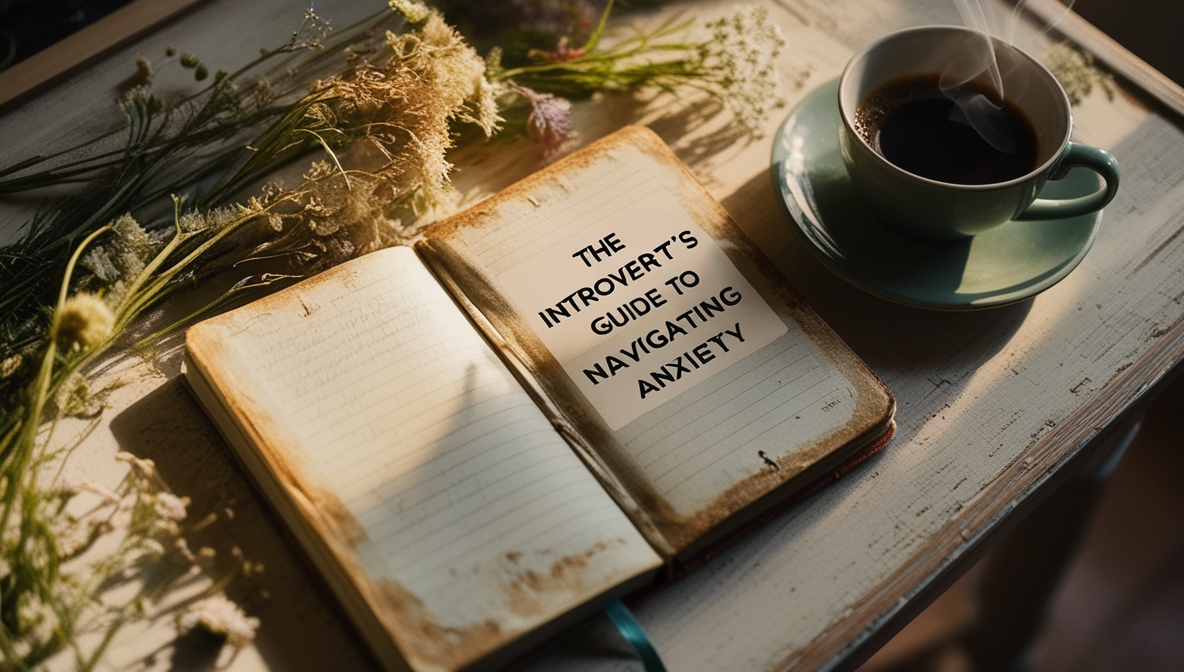Have you ever felt like you’re screaming inside while the world sees only silence? For many introverts grappling with social anxiety, this experience is all too familiar. This blog post explores the unique challenges faced by introverts with anxiety and offers practical strategies to thrive in a world that often feels overwhelming.
Introduction
Picture this: Many people are chatting and laughing around you at the party. But instead of joining in, you’re desperately searching for the nearest exit, your heart racing and palms sweating. If this scenario resonates with you, you might be an introvert dealing with anxiety. Social anxiety disorder is a specific type of anxiety that can affect introverts, making social situations particularly daunting.
Introverts often prefer quieter, less stimulating environments. When anxiety enters the mix, social situations can become even more challenging. This post will help you understand the connection between introversion and anxiety and provide tools to manage both effectively.
Understanding Introversion and Anxiety

Anxiety is a natural stress response and can be beneficial in some situations. It can alert us to dangers and help us prepare and pay attention. However, anxiety can also manifest in various forms, including anxiety disorder, which encompasses conditions like social anxiety disorder.
What is introversion?
Introversion is a personality trait characterized by a preference for calm, minimally stimulating environments. Introverts often:
Recharge by spending time alone
Feel drained after socializing
Prefer deep, one-on-one conversations to large group settings
Think before speaking
Have a rich inner world
Introverts tend to avoid intense social situations, which can contribute to anxiety.
What is social anxiety disorder?
Anxiety is more than just feeling nervous. Anxiety symptoms include excessive worrying, restlessness, and difficulty concentrating, which can interfere with daily life. Common symptoms include:
Excessive worrying
Restlessness
Difficulty concentrating
Sleep problems
Physical symptoms like rapid heartbeat or sweating
The Introvert-Anxiety Connection

While not all introverts have anxiety, and not all people with anxiety are introverts, there’s often an overlap. Social anxiety disorder is a multifaceted condition that can coexist with introversion. Here’s why:
Overstimulation: Introverts can become overwhelmed in social situations, leading to anxiety.
Overthinking: Both introverts and those with anxiety tend to analyze situations deeply.
Social expectations: Pressure to be more outgoing can cause stress for introverts.
Challenges Faced by Introverts with Anxiety
Social situations: Large gatherings can be especially draining and anxiety-inducing, particularly for those experiencing social anxiety introversion.
Work environments: Open-plan offices and team-building activities may feel overwhelming.
Relationships: Balancing the need for alone time with maintaining connections can be tricky.
Self-expression: Difficulty in speaking up or sharing thoughts can lead to feelings of isolation.
Strategies for Thriving as an Introvert with Anxiety
1. Embrace your introversion
Your introversion is a strength, not a weakness. Recognize the value of your thoughtful nature and rich inner world.
2. Practice self-care
Make time for activities that recharge you, such as reading, walking in nature, or pursuing creative hobbies.
3. Set boundaries
Learn to say no to social events that drain you. It’s okay to prioritize your mental health.
Develop coping strategies for high functioning anxiety
Try breathing exercises, meditation, or journaling to manage the excessive fear associated with anxiety.
Find your tribe through social interactions
Seek out like-minded individuals who understand and appreciate your introverted nature.
6. Communicate your needs
Let friends, family, and colleagues know about your preferences and challenges. Most people will be understanding and supportive.
7. Challenge yourself gradually
Step out of your comfort zone in small, manageable ways. This can help build confidence over time.
Seek professional help for mental health
If anxiety is significantly impacting your life, it may be a sign of a mental health condition that requires professional help. Consider talking to a therapist who can provide personalized strategies.
Conclusion
Being an introvert with anxiety comes with unique challenges, but it also offers opportunities for deep self-understanding and growth. By embracing your introversion, developing effective coping strategies, and seeking support when needed, you can navigate the world more easily and confidently.
While introverts may enjoy their own company, it’s crucial to identify when social anxiety is the cause of this preference.
Remember, your quiet strength is a superpower. Use it to create a life that honors your needs while allowing you to connect meaningfully with others.
What strategies have you found helpful as an introvert dealing with anxiety? Share your experiences in the comments below, or contact a mental health professional for personalized support.







Leave a Reply